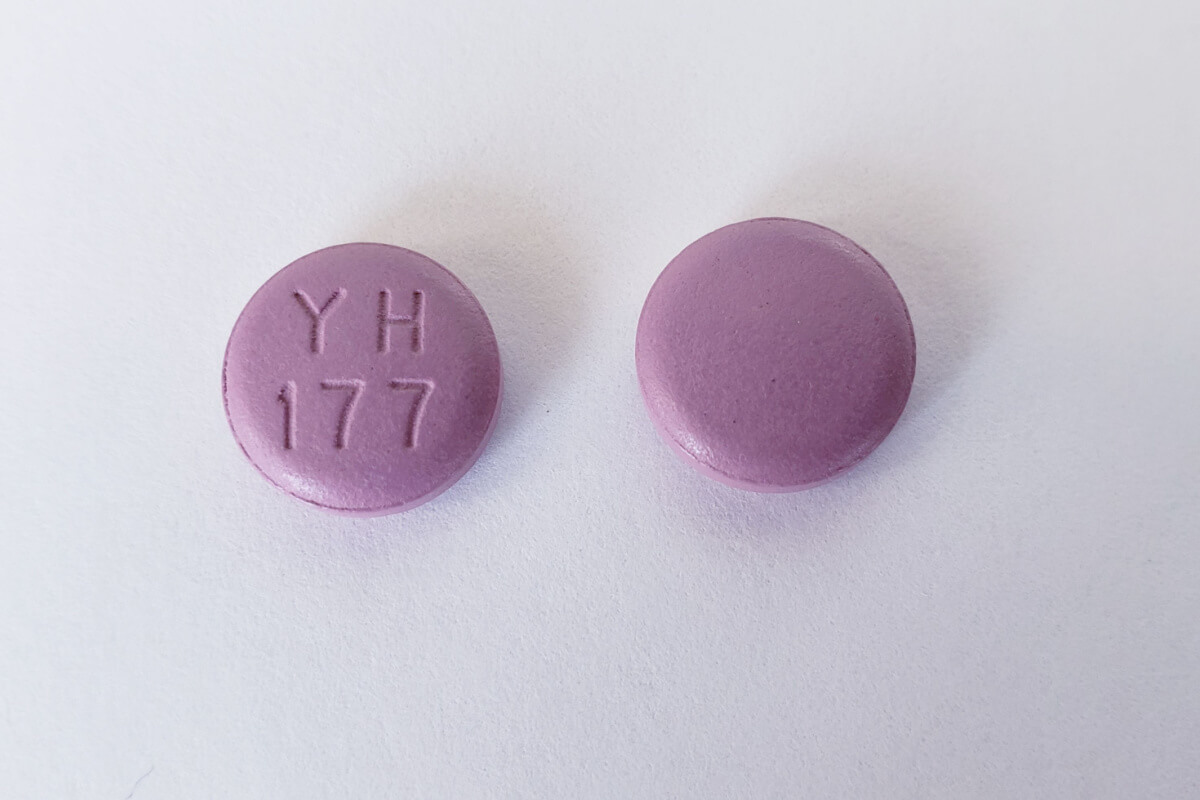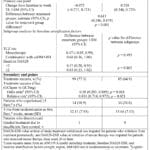Deciding to discontinue Wellbutrin (bupropion) is a significant step, and understanding the potential withdrawal effects is crucial for a smooth transition. This guide provides a comprehensive overview of the bupropion withdrawal timeline, common symptoms, and effective management strategies. We’ll explore how factors like dosage and duration of use can influence withdrawal, offering practical tips and emphasizing the importance of consulting a doctor throughout this process. This information will empower you to navigate this transition with confidence and support.
What to Expect During Bupropion Withdrawal
Stopping bupropion can be likened to weaning off caffeine—your body needs time to adjust. This adjustment period, known as withdrawal, can be navigated more easily with the right information and support.
The Bupropion Withdrawal Timeline
Most individuals experience withdrawal symptoms within 2-3 days of their last dose, peaking around the one-week mark. Symptoms then gradually subside over the following 1-2 weeks, with most people feeling back to normal within 3 weeks. However, this timeline isn’t set in stone. Factors such as dosage, length of bupropion use, individual metabolism, and even genetics may influence the duration and intensity of withdrawal. Some people might experience a quicker withdrawal, while others may find it takes a little longer. Protracted withdrawal, though less common, can involve lingering mild symptoms for several months.
Common Bupropion Withdrawal Symptoms
Many individuals describe bupropion withdrawal as similar to a mild case of the flu. Common symptoms include:
- Irritability and anxiety
- Sleep disturbances (especially insomnia)
- Persistent headaches
- Body aches and fatigue
- Mood swings
Less common, but documented, symptoms include dizziness, feelings of unreality (depersonalization/derealization), muscle cramps, stomach problems, and even brief sensations similar to electric shocks in the head. While these sensations can be unsettling, they are typically temporary.
The Importance of Tapering
Abruptly stopping bupropion (“cold turkey”) is strongly discouraged, as it significantly increases the risk and intensity of withdrawal symptoms. Tapering, or gradually reducing your dosage under a doctor’s supervision, allows your brain to adjust smoothly. How long does it take to get bupropion out of your system? While the medication itself clears the body in about five days, the effects on brain chemistry can linger, making tapering essential for a comfortable transition.
Managing Bupropion Withdrawal Symptoms
While the withdrawal timeline might seem daunting, several strategies can ease the discomfort:
Lifestyle Adjustments
- Prioritize Sleep Hygiene: A consistent sleep schedule, calming bedtime routine, and a dark, quiet bedroom can improve sleep quality.
- Manage Stress: Incorporate stress-reducing practices like yoga, meditation, deep breathing exercises, or spending time in nature.
Medical Support
- Temporary Medications: Your doctor might suggest temporary medications to alleviate specific symptoms. This is a decision best made in consultation with your physician.
- Professional Guidance: Consulting your doctor is paramount. They can provide personalized advice, monitor your progress, address complications, and offer resources if you’re concerned about potential misuse or need guidance on detoxification programs.
Emotional Support
- Seek Support: Talking to a therapist, counselor, or support group can provide emotional support and practical coping strategies.
Remember, you don’t have to go through this alone. Connecting with others who understand can be incredibly beneficial.
Additional Considerations
Individual Experiences Vary
Withdrawal is a highly individual experience. Factors like dosage, treatment duration, metabolism, and other health factors can influence your symptoms. While some experience noticeable discomfort, others report few or no symptoms.
Protracted Withdrawal
In some cases, individuals may experience protracted withdrawal, characterized by mild, lingering symptoms that can last for months. Consulting a physician for long-term management is recommended in such instances.
[!NOTE]
This information is for general knowledge and does not replace professional medical advice. Always consult a qualified healthcare professional for personalized guidance regarding your health or treatment.
What does bupropion withdrawal feel like?
Quitting any medication can bring about unique experiences. Bupropion withdrawal often resembles a mild case of the flu, but individual reactions range widely. Understanding the potential symptoms and their management empowers you to make informed decisions about your treatment.
Decoding the Discomfort: Common Symptoms
The most frequently reported bupropion withdrawal symptoms include anxiety, irritability, insomnia, headaches, and general flu-like symptoms. Many individuals experience mood swings, fatigue, and difficulty concentrating.
Beyond the Basics: Less Frequent Effects
Less commonly, individuals may experience dizziness, lightheadedness, feelings of unreality (depersonalization or derealization), muscle cramps, stomach issues, or even brief electric shock-like sensations in the head. While these symptoms are less prevalent, they warrant a conversation with your doctor if experienced.
The Importance of Tapering Revisited
The potential for these symptoms underscores the importance of tapering off bupropion gradually under medical supervision. This minimizes the intensity and likelihood of withdrawal symptoms.
Finding Relief and Support
Managing withdrawal involves a multifaceted approach. Prioritizing sleep, managing stress through techniques like yoga or meditation, maintaining a healthy diet, and engaging in light exercise can contribute to overall well-being during this transition. Connecting with supportive friends, family, or a therapist is also invaluable.
Your Doctor: Your Ally in the Process
Your doctor is your primary resource for managing bupropion withdrawal. They can address your concerns, tailor a plan to your needs, monitor your progress, and potentially suggest medications to manage specific symptoms. They can also provide guidance if you’re concerned about addiction or require detox support.
Your Unique Journey
It’s essential to remember that everyone’s withdrawal experience is different. Factors such as dosage, treatment duration, metabolism, and other health factors play a role. While some individuals experience significant discomfort, others transition off bupropion with minimal or no noticeable symptoms. Informed decision-making, in collaboration with your healthcare provider, ensures a smoother, more supportive transition.
How long does it take to get bupropion out of your system?
Bupropion’s exit from your body is a gradual process influenced by various factors. Understanding this process is crucial for anyone considering stopping the medication.
Key Takeaways:
- Bupropion has a half-life of roughly 21 hours. This means every 21 hours, your body eliminates about half the remaining medication.
- Complete elimination typically takes around 5 days (or five half-lives).
- Even after bupropion is eliminated, its effects on brain chemistry can linger, explaining the potential for withdrawal symptoms.
- Tapering, under a doctor’s supervision, is the safest and most comfortable way to discontinue bupropion.
The Elimination Process in Detail
Bupropion gradually enters your system, distributes itself, and then slowly dissipates. After five half-lives (approximately five days), very little of the actual bupropion remains. However, its influence on neurotransmitters can persist, affecting the withdrawal timeline.
Factors Influencing Elimination
Several factors influence how your body eliminates bupropion. These include age, metabolic rate, liver and kidney health, dosage, and any other medications you’re taking. Some medications can interact with bupropion, altering its elimination rate.
Navigating the Withdrawal Timeline
Discontinuing bupropion can sometimes cause withdrawal symptoms, primarily due to the brain adjusting to functioning without the medication’s consistent stimulation. These symptoms typically emerge within a few days of stopping and generally last for one to two weeks, though some individuals may experience them for a more extended period.
Ensuring a Smooth Departure
Gradual tapering, guided by your healthcare provider, is the most effective way to minimize withdrawal discomfort. This allows your brain to adapt smoothly, reducing the likelihood of intense symptoms.
Seeking Support: When and Why
While many individuals manage bupropion withdrawal without significant issues, some might experience more pronounced or prolonged symptoms. Consulting your doctor or a qualified healthcare professional is crucial if you have any concerns. They offer personalized advice, monitor your progress, and provide tailored support. Medically supervised detox might be recommended in certain cases, particularly for those who have been on high doses or used bupropion for an extended period, or have a history of substance use disorders.
Remember, understanding elimination is just one aspect. Understanding potential withdrawal symptoms, influential factors, and management strategies is equally important. Open communication with your doctor is key.
What is the washout period for Wellbutrin?
Let’s clarify the concept of a “washout period” concerning Wellbutrin (bupropion). This involves understanding the difference between a washout period and discontinuation and how it applies specifically to Wellbutrin.
Defining the Washout Period
A “washout period” is the time required for a medication to leave your system before starting a new one, primarily to prevent drug interactions.
Wellbutrin and Washout Periods
In most cases, a washout period isn’t necessary when switching from Wellbutrin to another antidepressant. It’s usually safe to transition directly. However, there’s a crucial exception: MAOIs (monoamine oxidase inhibitors). Switching from Wellbutrin to an MAOI requires a washout period to avoid serious health complications. Your doctor will determine the appropriate timeframe.
Washout vs. Discontinuation
It’s important to distinguish between washout (preventing drug interactions) and discontinuation (minimizing withdrawal symptoms). While related, they’re not interchangeable.
Discontinuing Wellbutrin Safely
Stopping Wellbutrin abruptly can lead to withdrawal symptoms like sleep disturbances, anxiety, irritability, and even flu-like symptoms. This occurs because your body needs time to adjust to functioning without the medication.
Tapering for a Smoother Transition
Tapering, or gradually reducing your Wellbutrin dose, is the recommended method for minimizing withdrawal effects. This allows your body to adapt more comfortably. Your doctor will personalize your tapering schedule based on your dosage, usage duration, and individual sensitivity.
Switching Antidepressants
When switching from Wellbutrin to a different antidepressant, your doctor will coordinate the transition to minimize any potential issues, either by starting the new medication while tapering off Wellbutrin or recommending a short break between the two.
Open Communication with Your Doctor
While a formal washout period isn’t typically required for Wellbutrin, withdrawal symptoms can still appear within a few days of stopping or reducing the dose. Most symptoms are temporary, resolving within a week or two, but some individuals might experience lingering effects. Maintaining open communication with your doctor is crucial throughout this process. They can answer your questions, address your concerns, and provide tailored guidance. Never make medication changes independently; consult your healthcare professional for a safe and comfortable transition.
Discover the benefits of using addy focus stimulant to enhance concentration and boost productivity. Curious about the palatable and convenient advantus soft chew? Learn more about its unique formulation. Concerned about your canine companion’s health? Explore the potential advantages of alizin for dogs and its role in supporting their well-being. Considering breast reduction surgery? Understand the realities of boob reduction scars and the healing process. Worried about the potential risks associated with psychedelic mushrooms? Uncover crucial information regarding can u overdose on shrooms and practice safe usage.
- China II Review: Delicious Food & Speedy Service - April 17, 2025
- Understand Virginia’s Flag: History & Debate - April 17, 2025
- Explore Long Island’s Map: Unique Regions & Insights - April 17, 2025
















